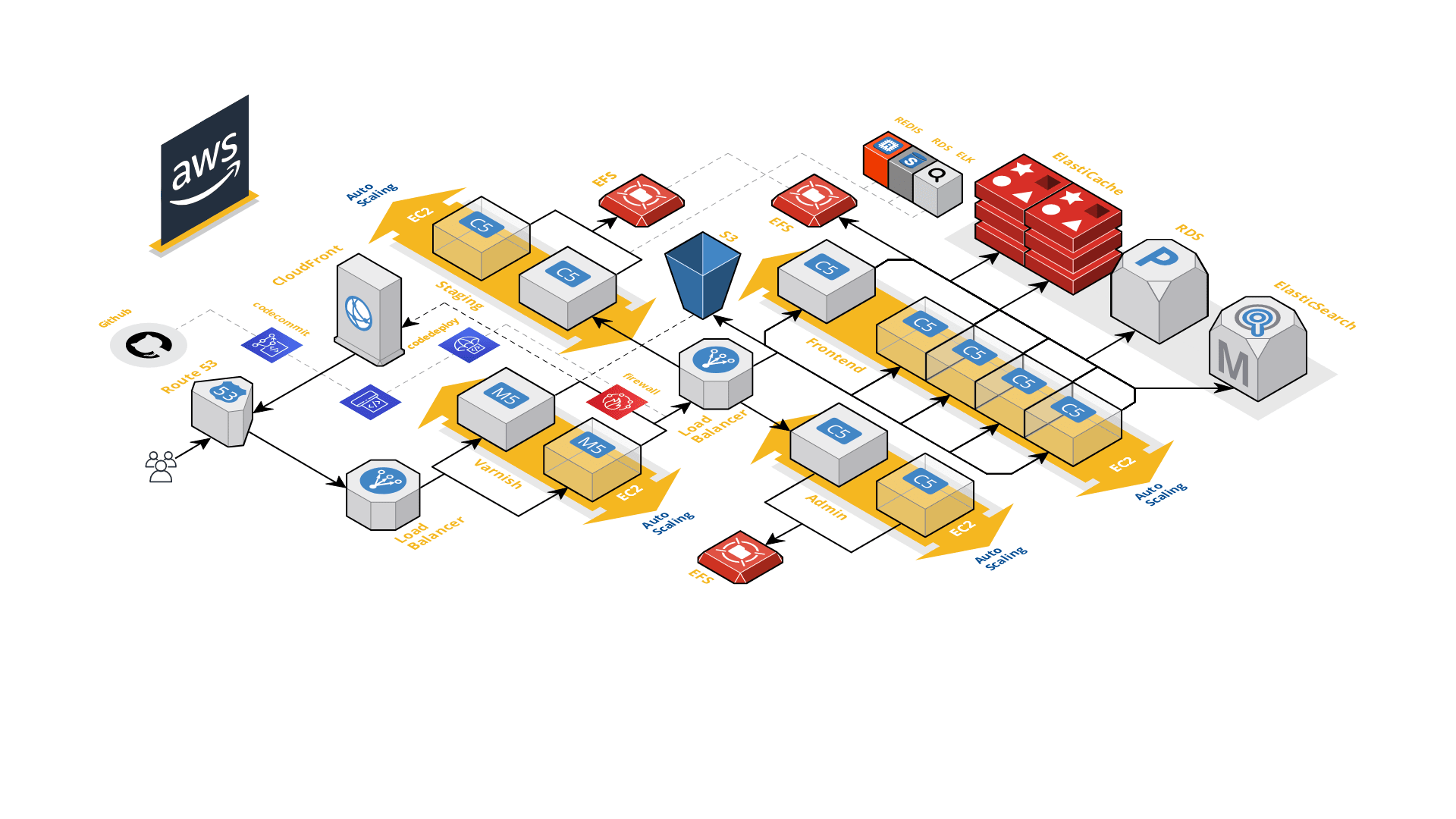Product added to cart
We use cookies to make your experience better. To comply with the new e-Privacy directive, we need to ask for your consent to set the cookies. Learn more.
We use cookies to make your experience better. To comply with the new e-Privacy directive, we need to ask for your consent to set the cookies. Learn more.
Creating an account has many benefits: check out faster, keep more than one address, track orders and more.

Magento 2 aws cluster configuration with terraform, An enterprise-grade solution for companies of all sizes, B2B B2C. Secure, flexible, and scalable infrastructure to allow you to build the experience you want your customers to have. Deploy a full-scale e-commerce infrastructure based on Magento 2 in a matter of seconds.
A huge project can be broken down into parts or into small projects.
Classic configuration for Magento 2 auto scaling cluster on AWS ❤️
Powered by Graviton2 Processor.
AWS CloudShell + Terraform.
https://github.com/magenx/Magento-2-aws-cluster-terraform
4 autoscaling groups with launch templates base64 converted from user_data.*5 instances target groups (varnish frontend admin staging developer)2 load balancers (external/internal) with listeners / rules1 rds mysql database1 build server1 elk domain2 redis elasticache1 rabbitmq broker2 s3 bucket1 codecommit repository 4 branches (main build staging developer)1 cloudfront s3 origin distribution1 efs file systemWith the advent of the AWS CloudShell, it is even easier to test and run infrastructure with Terraform.
Simply log in to the AWS Console, open AWS CloudShell, install Terraform, and you're good to go.
$ sudo yum install -y yum-utils
$ sudo yum-config-manager --add-repo https://rpm.releases.hashicorp.com/AmazonLinux/hashicorp.repo
$ sudo yum -y install terraform
The home directory has persistent storage.
This website uses cookies to improve your experience. By clicking “Deny”, you consent to the use of Necessary cookies only. You may also accept selected cookies only.
Get the latest deals, updates, technology changes and more.
Thank you , I already subscribed.